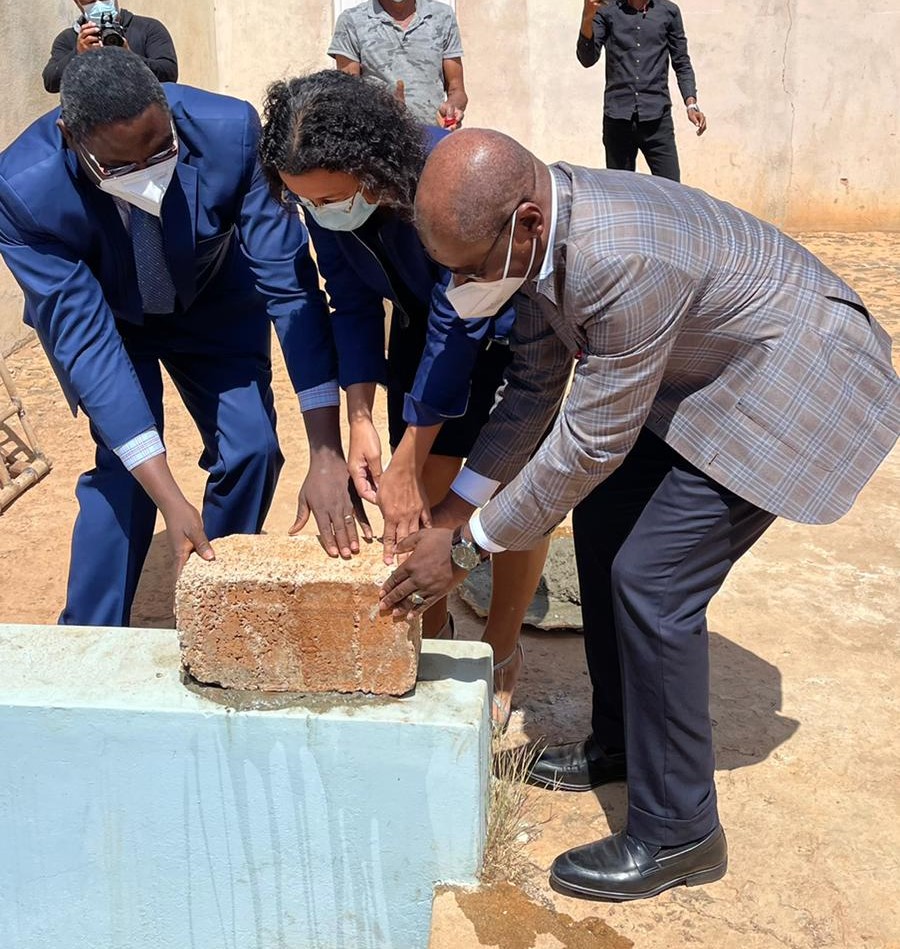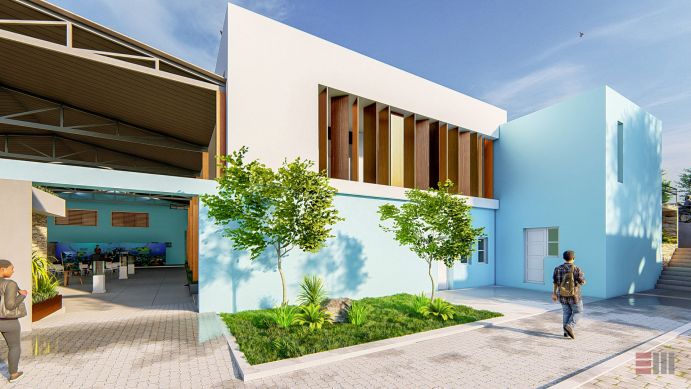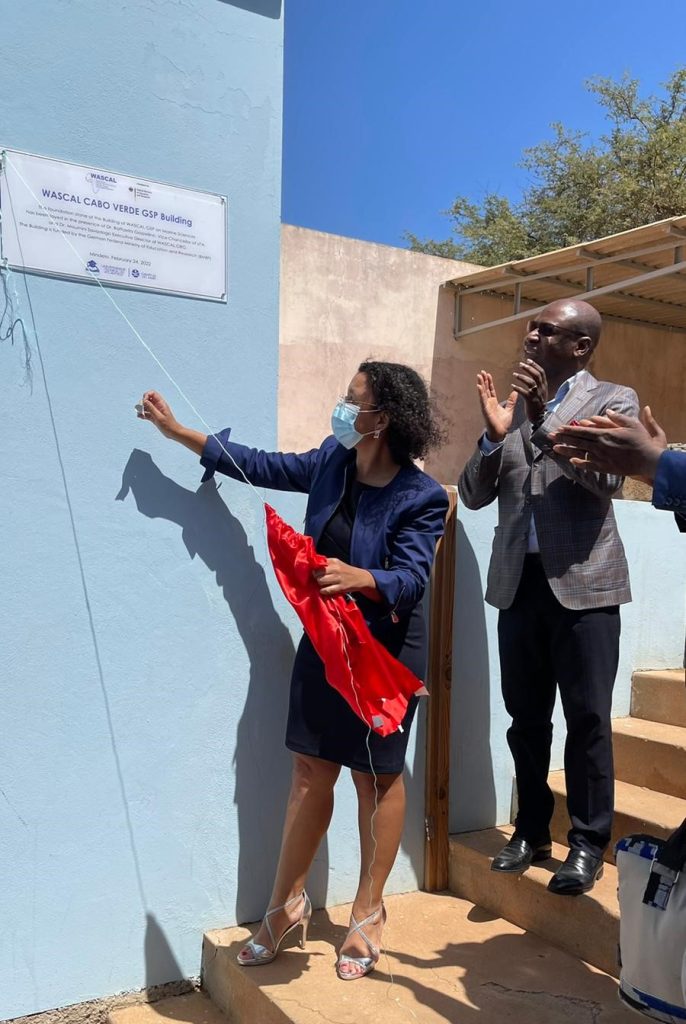Laying of the foundation stone on Cape Verde: The official start of construction of the new WASCAL research and administration building took place today in Mindelo. The BMBF is funding the construction of the building as a sponsor of the WASCAL master’s programme based there.

The construction plans are ready, now it’s time for excavators & co. On 24 February 2022, the foundation stone was laid for the new WASCAL research and administration building in the port city of Mindelo in Cape Verde. Here, new seminar rooms, laboratories, offices and space for exchange will be created for the approximately 30 students who are completing the WASCAL Master’s programme “Climate Change and Marine Sciences” there. The graduate school programme at the Atlantic Technical University of Cape Verde was launched in 2019 by the Science Service Centre WASCAL and is funded by the German Federal Ministry of Education and Research (BMBF). In order to offer students good conditions for their teaching and research, the BMBF is investing around 300,000 euros in the construction and renovation work. The laying of the foundation stone marks the start of the approximately six-month construction of the new building.

The WASCAL Master’s programme “Climate Change and Marine Sciences” focuses on climate change research, but also on marine sciences and coastal and marine management. In addition, the academic training takes place on board a research vessel. A three-week scientific trip to German partner institutions is also on the curriculum of the WASCAL students. The Master’s programme is run by the Atlantic Technical University of Cape Verde in close cooperation with the GEOMAR Helmholtz Centre for Ocean Research Kiel, the University of Kiel and the Thünen Institute as German partner institutions, and the National Institute for Fisheries Development (INDP) as the local partner institution.
In addition to the Master’s programme in Mindelo, the Federal Ministry of Education and Research is also funding the two-year WASCAL Master’s programme “Informatics for Climate Change” in West Africa, which is being conducted at the University of Ouagadougou in Burkina Faso. The BMBF is supporting both master’s programmes with total funding of 1.2 million euros.

Source:

